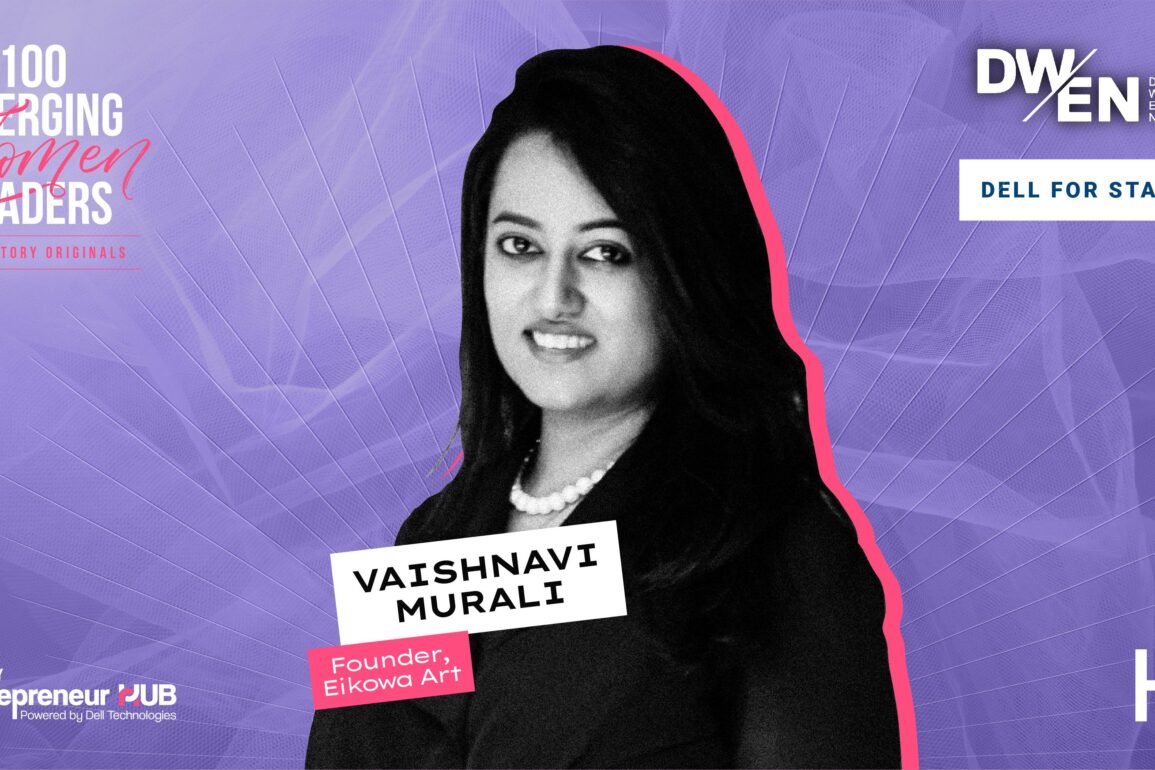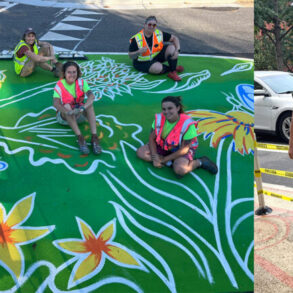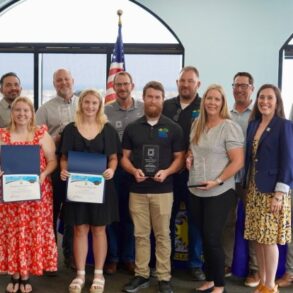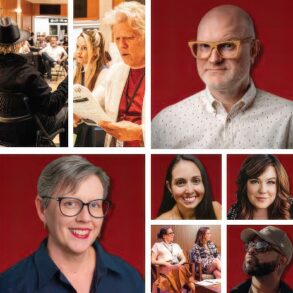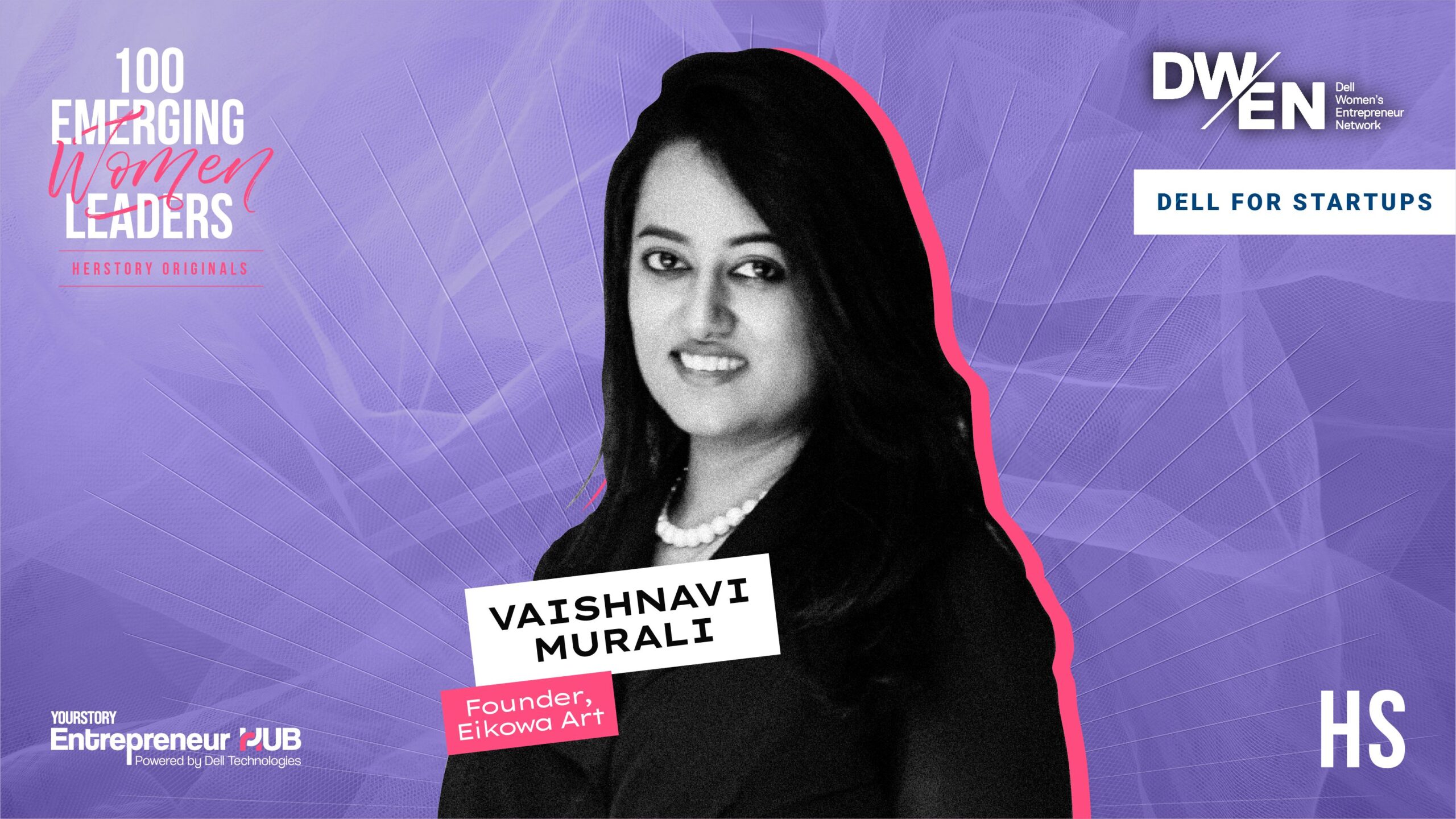
Growing up, Vaishnavi Murali was always intrigued about art. While in school, she painted on glass, napkin holders, and sarees.
Years later, she founded Eikowa, an online art gallery that has expanded into two physical spaces in Hyderabad and Gurugram.
While her heart was set on art school, her uncle’s advice led her to focus on business education.
“He said, ‘Make sure you get your education in order, because then you can do whatever you want.’ So, I went ahead and did my BCom and an MBA,” Murali tells HerStory.
She explains, “I figured, if I wasn’t going to be an artist, I can still be on the business side of art and follow my passion.”
The drive behind Eikowa
Murali’s education at Indian School of Business (ISB) Mohali proved pivotal as she witnessed the institution’s support for art firsthand.
“Every three to four months, there was a new wave of art coming into the campus,” she says, recounting how fascinated she was by the quality of work.
“I wondered, if we had such good artists in the country, why weren’t we aware of them?”
This question became the seed for Eikowa.
While the startup culture in India was booming, Murali realised that no one was talking about art in the same way.
“Everyone around me in my network—at IIMs and ISBs—were talking about doing startups in different spaces. But no one was talking about tapping into the art market, which has so much promise and scope,” says Murali.
With a background in luxury brand management, following stints with brands like Armani, Versace, and Jimmy Choo, Murali felt uniquely equipped to enter the art world.
“Working with luxury brands, I’ve seen people with finer tastes who are ready to buy expensive things. It gave me the confidence to think about art as a business, because it’s not a mass product,” she says.
Eikowa was launched in 2015 as an online art gallery with a mission to democratise art. Murali wanted to create a space where first-time art buyers could feel comfortable and informed–something she felt that traditional galleries often failed to offer.
“Galleries can feel intimidating if you are new to the art world,” she says. “We wanted to create a comfortable atmosphere where people could ask questions and get proper answers.”
Eikowa’s business model integrates technology into the art business, something Murali feels gives her venture an edge.
“We introduced augmented reality about three years after we launched, allowing people to see a painting in their home in real time by uploading a photo onto our website,” she shares.
The platform also offers blockchain certification for senior artists, providing a digital method to ensure the authenticity of their artwork.
“When you’re talking big money and senior artists, authenticity becomes important,” says Murali.
Over the years, Eikowa has expanded its reach, opening physical galleries in Hyderabad and Gurgaon. This expansion is part of Murali’s broader vision to make art accessible to a wider audience.
“It was always seen as an elitist space, but that’s changing now,” she says. “The number of first-time art buyers has grown exponentially. Disposable income has increased, and sensibilities have evolved. People want to elevate every aspect of their life, and that includes art.”
A welcome space for upcoming artists
Murali decided to strengthen Eikowa’s commitment to emerging artists with the launch of Eikowa Contemporary, a vertical dedicated to promoting younger talent.
“We do a through programming of curated exhibitions. We bring in experienced curators to handpick younger artists, who deserve greater promotion. These shows have a mix of emerging as well as established artists ,” she explains.
“The best way for a younger artist to grow is to have their name on a list with some senior artists, which helps elevate their profile.”
Murali believes in maintaining a smaller, curated group of artists in their network to ensure everyone receives the attention they deserve.
Breaking preconceptions
Murali acknowledges that while women have made significant strides in many industries, there are still barriers to entry in the art world.
“Art is traditionally seen as a space for men—especially when it comes to gallery ownership or leading institutions,” she says.
“There’s this preconceived notion that women in the art space are either artists or assistants, but they are rarely seen as decision-makers or curators. That needs to change.”
More women are now stepping into leadership roles in the art industry, but there’s still much work to be done, points out Murali.
“We’re seeing women enter the art scene, but the numbers are still not where they should be,” she says.
She believes it’s time to break preconceptions and empower women to take on roles beyond being artists. This means more women must be running galleries, curating exhibitions, and making important business decisions in the art space.
“At Eikowa, we make sure that women are part of every aspect of the business, whether it’s sales, curation, or even managing our technology.
“There’s so much potential for women in art, not just in creating it, but in shaping how it’s presented to the world.”
This post was originally published on this site be sure to check out more of their content




